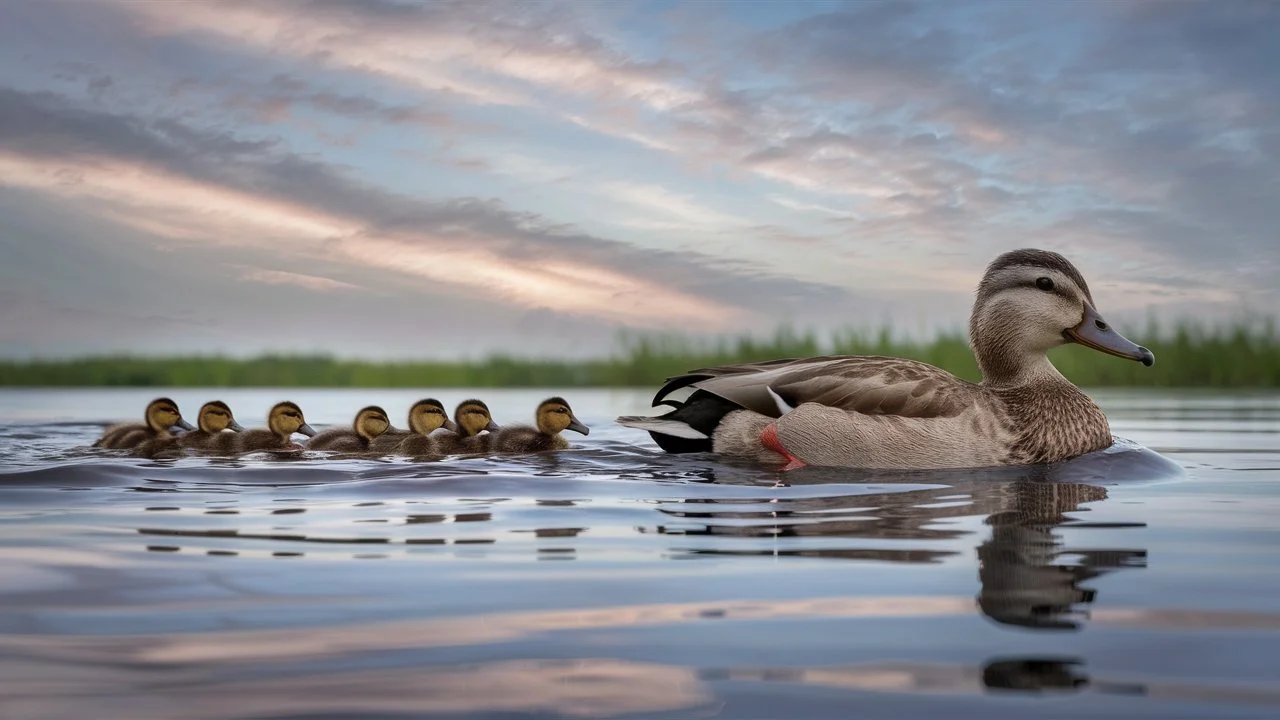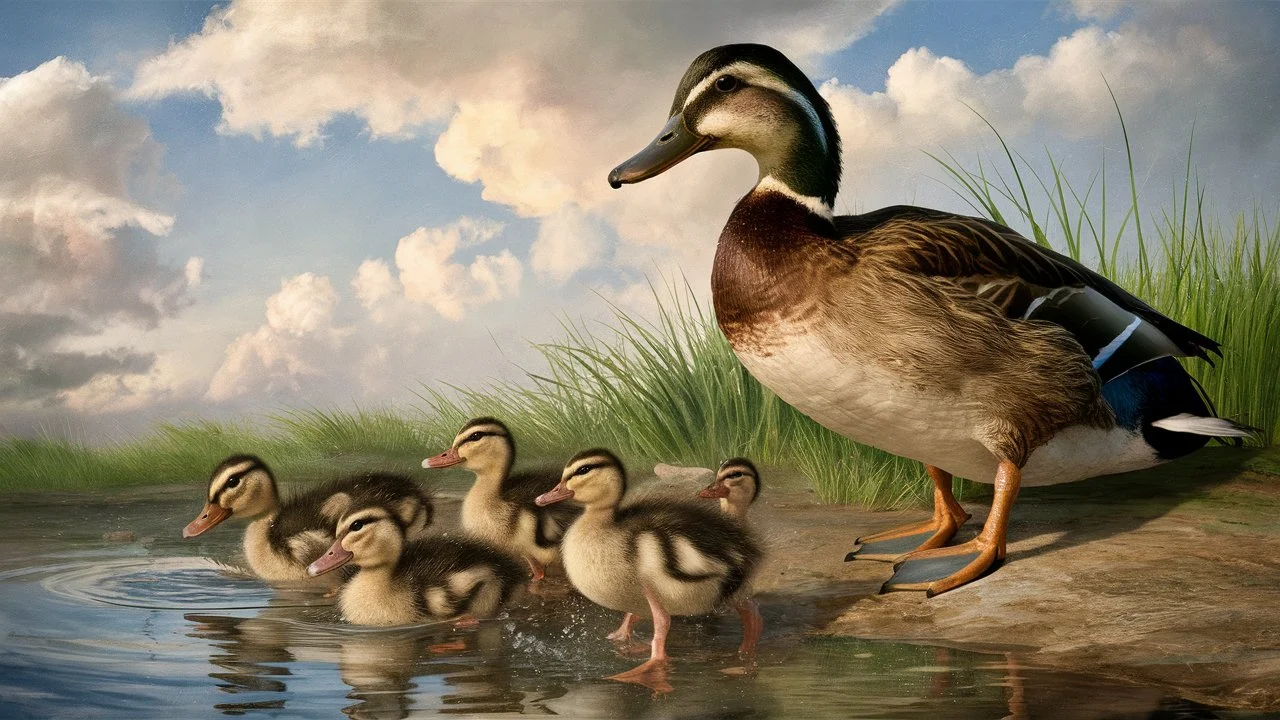Will Female Ducks Kill Ducklings?
When observing ducks, people often wonder about the behavior of female ducks, or hens, towards ducklings. A common question is whether female ducks will kill ducklings. In this article, we will explore this topic and explain why such behavior might occur, if at all.
Do Female Ducks Kill Ducklings?
Female ducks generally do not kill ducklings, especially their own. They are typically very nurturing and protective of their young. However, there are certain situations where a female duck might harm ducklings, though this is relatively rare.
Possible Reasons for Harmful Behavior
- Stress or Overcrowding: In environments where ducks are stressed or overcrowded, a female duck might display aggressive behavior. High stress levels or lack of space can lead to unusual actions, including aggression towards ducklings.
- Injury or Illness: If a duckling is injured or ill, a female duck might sometimes abandon it. While this is not the same as actively killing the duckling, it can lead to the duckling’s death if it is left without care.
- Adoption of Unrelated Ducklings: Sometimes, a female duck might adopt ducklings that are not her own. In these cases, she might not recognize the ducklings or may see them as intruders, leading to aggression.
How Common Is This Behavior?
Aggressive behavior by female ducks towards ducklings is not common. Most female ducks are very caring and will go to great lengths to protect and nurture their young. The situations where a female duck might harm ducklings are exceptions rather than the rule.
How to Protect Ducklings
To ensure the safety and well-being of ducklings, here are some tips:
- Provide a Calm Environment: Ensure that ducks have a calm, stress-free environment with plenty of space. This reduces the likelihood of aggressive behavior.
- Monitor Health: Keep an eye on the health of the ducklings. If you notice any that are injured or ill, provide care and attention promptly.
- Separate Aggressive Ducks: If a female duck is showing signs of aggression towards ducklings, consider separating her temporarily to prevent harm.
Will Male Ducks Kill Female Ducks?
When observing ducks, it’s important to understand their behavior, especially between males and females. A common question is whether male ducks, or drakes, will kill female ducks. In this article, we will explore this topic and explain why such behavior might occur, if at all.
Do Male Ducks Kill Female Ducks?
It is very rare for male ducks to kill female ducks. However, male ducks can exhibit aggressive behavior, particularly during mating season. This aggression is more commonly directed towards other males but can sometimes affect females.
Possible Reasons for Aggressive Behavior
- Mating Season: During mating season, drakes can become very aggressive as they compete for the attention of females. This can lead to rough behavior and, in rare cases, injury to female ducks.
- Dominance: Male ducks establish a social hierarchy, and in doing so, they may become aggressive. While this aggression is usually directed towards other males, females can sometimes be affected if they are in the way or if the male is overly dominant.
- Resource Protection: Drakes may become territorial and aggressive to protect their resources, such as food and nesting areas. This behavior is generally directed towards other males, but it can occasionally involve females.
How Common Is This Behavior?
While aggressive behavior from male ducks towards female ducks is not uncommon, it rarely results in death. Most of the time, the aggression involves chasing, pecking, or rough mating, which can lead to stress and injury but not usually death.
How to Protect Female Ducks
To ensure the safety and well-being of female ducks, here are some tips:
- Provide Enough Space: Ensure that ducks have plenty of space to reduce territorial aggression. Overcrowding can increase stress and aggression.
- Monitor During Mating Season: During mating season, keep a close eye on the ducks. If you notice excessive aggression, consider separating the aggressive males to protect the females.
- Provide Hiding Spots: Make sure there are places where female ducks can escape from aggressive males, such as bushes, shelters, or separate enclosures.
Do Male Ducks Help Raise Ducklings?
Introduction When it comes to raising ducklings, many people wonder if male ducks, or drakes, play a role in their upbringing. This article will explore whether male ducks help in raising ducklings and explain the typical roles of both male and female ducks in this process.
Do Male Ducks Help Raise Ducklings?
In most duck species, male ducks do not help raise ducklings. After mating, drakes usually do not participate in the care of the young. The primary responsibility for raising ducklings falls on the female ducks, or hens.
Typical Roles of Male and Female Ducks
- Female Ducks (Hens): Female ducks are primarily responsible for incubating the eggs and caring for the ducklings after they hatch. They keep the eggs warm, protect them from predators, and lead the ducklings to food and water once they hatch. Hens teach the ducklings essential survival skills and keep them safe.
- Male Ducks (Drakes): Male ducks typically do not engage in raising the ducklings. Their primary role is to mate with the females and sometimes to protect the territory during the mating season. After the eggs are laid, drakes usually leave the nesting area and do not participate in caring for the young.
Why Don’t Male Ducks Help Raise Ducklings?
The lack of involvement by male ducks in raising ducklings is a natural behavior seen in many bird species. There are a few reasons for this:
- Evolutionary Behavior: In many bird species, including ducks, females have evolved to take on the primary caregiving role. This allows the males to focus on mating and protecting their territory.
- Protection and Survival: By not staying with the nest, drakes can help reduce the risk of attracting predators to the nesting site. Their presence could potentially draw attention to the vulnerable eggs and ducklings.
- Energy Conservation: Male ducks conserve their energy for future mating opportunities and territorial defense. This increases their chances of reproducing with multiple females and passing on their genes.
Are There Exceptions?
While it is uncommon, there are a few duck species where males might show some involvement in caring for the young. However, this is the exception rather than the rule. In most cases, the female duck handles all aspects of raising the ducklings.


